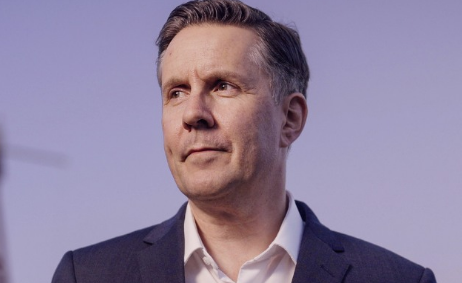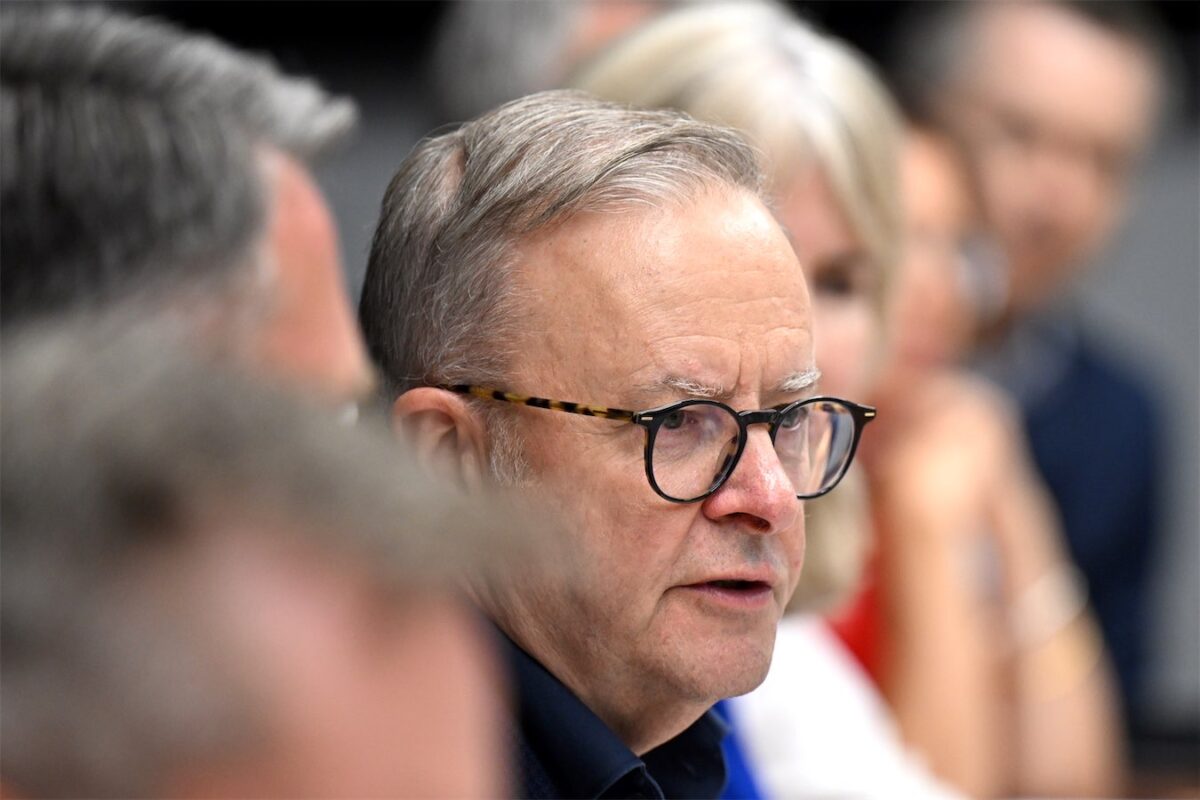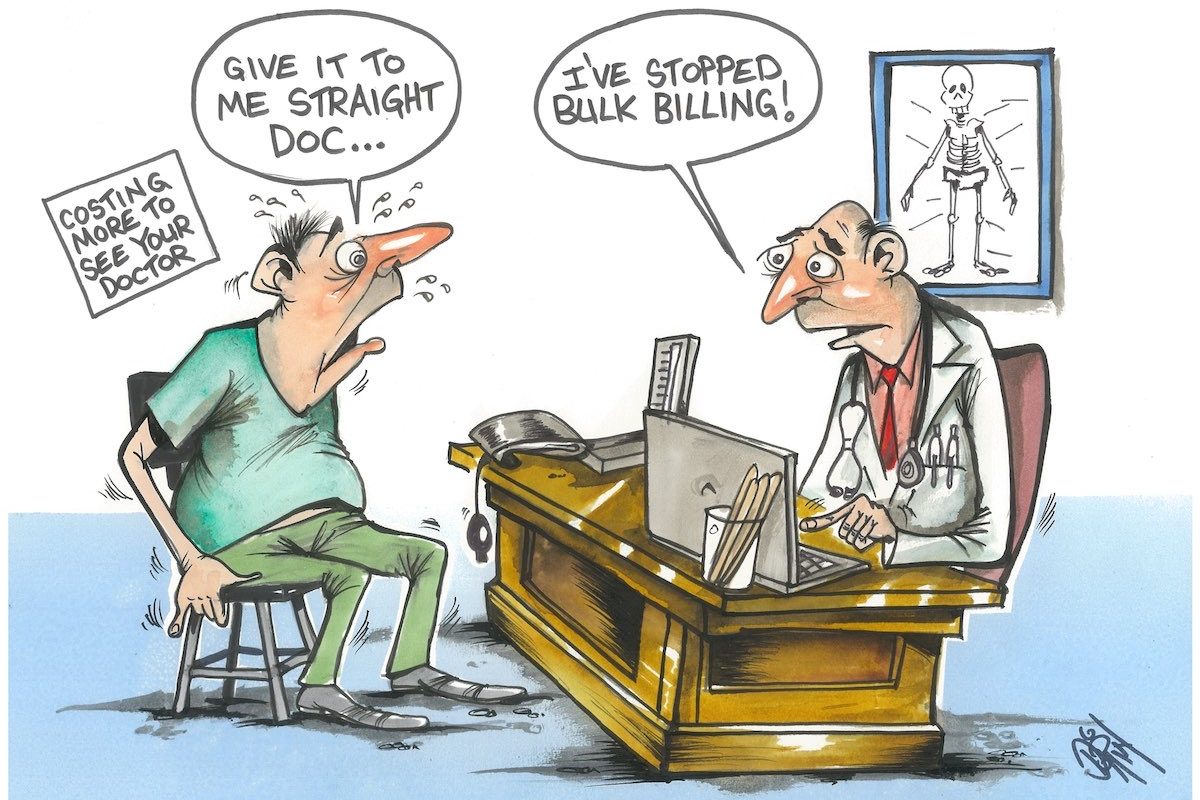WITH covid cases surging in a new wave and half the winter still ahead, the news from Health Minister Mark Butler isn’t good.

“We haven’t reached the peak of the wave yet,” said Mr Butler.
“Case numbers are going to continue to climb over the coming weeks […] and as a result, hospitalisations are going to continue to climb as well.”
The response, he says, is “a question of balance”.
People accept “that wearing a mask does reduce transmission”, but “we’re not going to move into lockdowns. We’re not going to see very broad-based mandates or government orders.”
Health authorities, as much as political leaders, recognise that “to get a balanced community response, you need to have a mix of targeted mandates”.
“We’ve had them all through the course of this year. So, for example, visitors to aged care facilities, to health facilities, public transport, aeroplanes – either where there is very high risk of transmission or where there is a population at high risk of severe illness,” said Mr Butler.
“You will continue to see those targeted mandates, I think, for some time. But beyond that, there is really strong advice, clear advice given to people about using the common sense lessons that we’ve learnt over the last couple of years.
“What we don’t want to end up with is a position where the community thinks government is being heavy handed or just continuing a situation which the community tolerated very well over [..] the first two years of the pandemic, but I think is starting to reach the end of their tether about.”
He defends not extending payments to workers forced to stay at home with covid.
“They are hard decisions for government not to continue those emergency payments. But as a number of us, from the Prime Minister to the Treasurer and myself, have made clear over the last few days, we’ve taken the hard view that we simply can’t continue emergency payments, very expensive emergency payments, forever with the budget that’s one trillion dollars in debt.”
“We’ve all hoped and maybe concluded that maybe this thing’s over. And every time that’s been the case, this virus has mutated again. It’s become more infectious. It keeps coming back. And so we are moving into a different phase of the pandemic where we recognise that the virus is endemic in Australia. It’s deeply established. We’ve got millions of people [who] have had it, hundreds of thousands of people have it today. And we need to find a response to the pandemic that reflects that, that we have moved out of an emergency phase.”
The pandemic has put huge pressure on already faltering hospital systems.
“We are going to have to have a good, long, hard talk to states about the position of the hospital system. The head of Prime Minister and Cabinet and his colleagues that head the premiers’ departments are working on that right now,” said Mr Butler.
“But we also need to recognise that a lot of the pressure on our hospitals reflects the running down of general practice, the running down of aged care staffing arrangements, and as the Commonwealth has responsibility directly for those areas the best thing we can do in the immediate term to relieve pressure on our hospitals is to rebuild general practice, to strengthen Medicare and to put nurses back into nursing homes.”
Health ministers have agreed to meet on a monthly basis, and “to have a very early meeting dedicated just to these [health] workforce challenges”.
The problems facing the caring economy will be discussed at the September 1-2 jobs summit. “We know that the engine room of jobs growth really over coming years and decades will come from the health sector, the aged care, disability and early childhood sectors. So there will be a strong discussion, strong representation at the jobs summit around the care economy.”![]()
Michelle Grattan, Professorial Fellow, University of Canberra. This article is republished from The Conversation.
Who can be trusted?
In a world of spin and confusion, there’s never been a more important time to support independent journalism in Canberra.
If you trust our work online and want to enforce the power of independent voices, I invite you to make a small contribution.
Every dollar of support is invested back into our journalism to help keep citynews.com.au strong and free.
Thank you,
Ian Meikle, editor




Leave a Reply